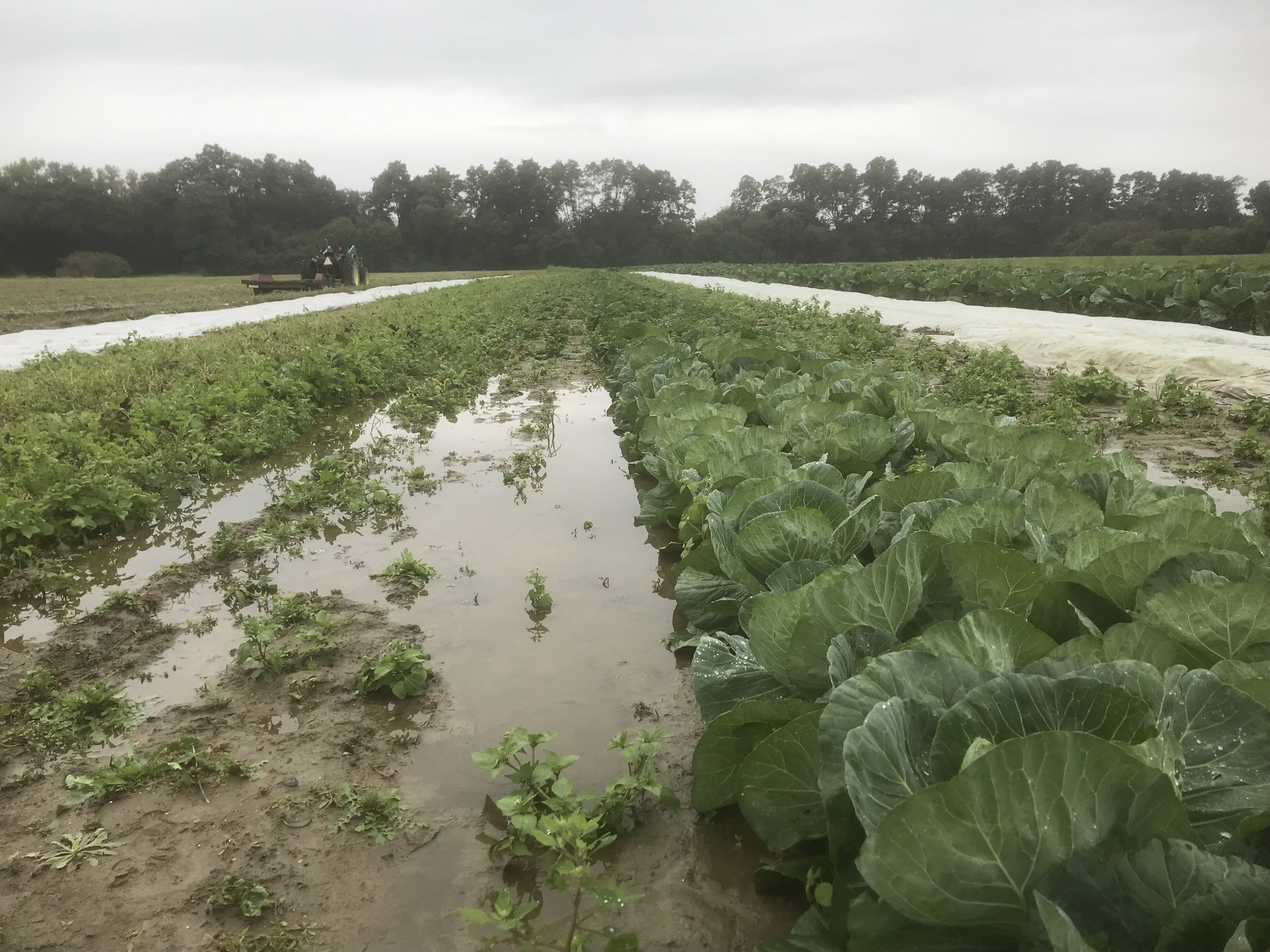More rain...
As you know, heavy rains in north of us in Vermont in July of this year caused the Connecticut River to rise up and flood our main field where most of our crops for the year were already planted. At that point it was too late to re-plant early and mid season stuff like cucumbers, squash, tomatoes, potatoes, and a lot more.
But it wasn’t too late to squeeze in some last minute re-seedings of fall carrots and radishes, as well as some fast growing leafy stuff like lettuce, kale, spinach, and even a few cabbages. We couldn’t plant the new stuff in the flooded main field, but a neighboring farm generously let us borrow two acres that they weren’t using down the road.
It hasn’t stopped raining since then, though. We’ve had a very wet season, with lots of heavy, concentrated rainfall. This past weekend was just the latest example. It wasn’t a major disaster, but there is a lot of standing water in the field, and some of the more sensitive crops like spinach and lettuce have just not been growing well (this on top of a small hail storm in early September that did a number on them as well!)
It is interesting to see how different soil drain so differently (the two acres we’ve been borrowing are quite different from our main field, and each of the two acres are very different from each other). The two pictures below are two different field taken on the same day at the same time. Both employ the method of “raised beds” which is pretty standard in our type of farming, it helps water shed off the bed top and collect in the aisles between crop rows so they don’t flood as easily. But one field is light, sandy soil that drains quickly, and the other is more of a mix with a lot of heavier clay, so the water stays closer to the surface longer (there’s also a geological component of what’s happening with rocks deeper down but honestly that’s not something I really know anything about…)
Anyway, most of these crops will be fine. The biggest challenge at this point is getting a vehicle out to where we want to harvest so we don’t have to carry heavy bins over long, muddy distances (sometimes we have to use a tractor with a trailer on it instead of our normal farm truck and van). It’s all just different strange-shaped objects to juggle - on a good day they all stay in the air and on some days they come crashing down and we have to pick them up and start over.


